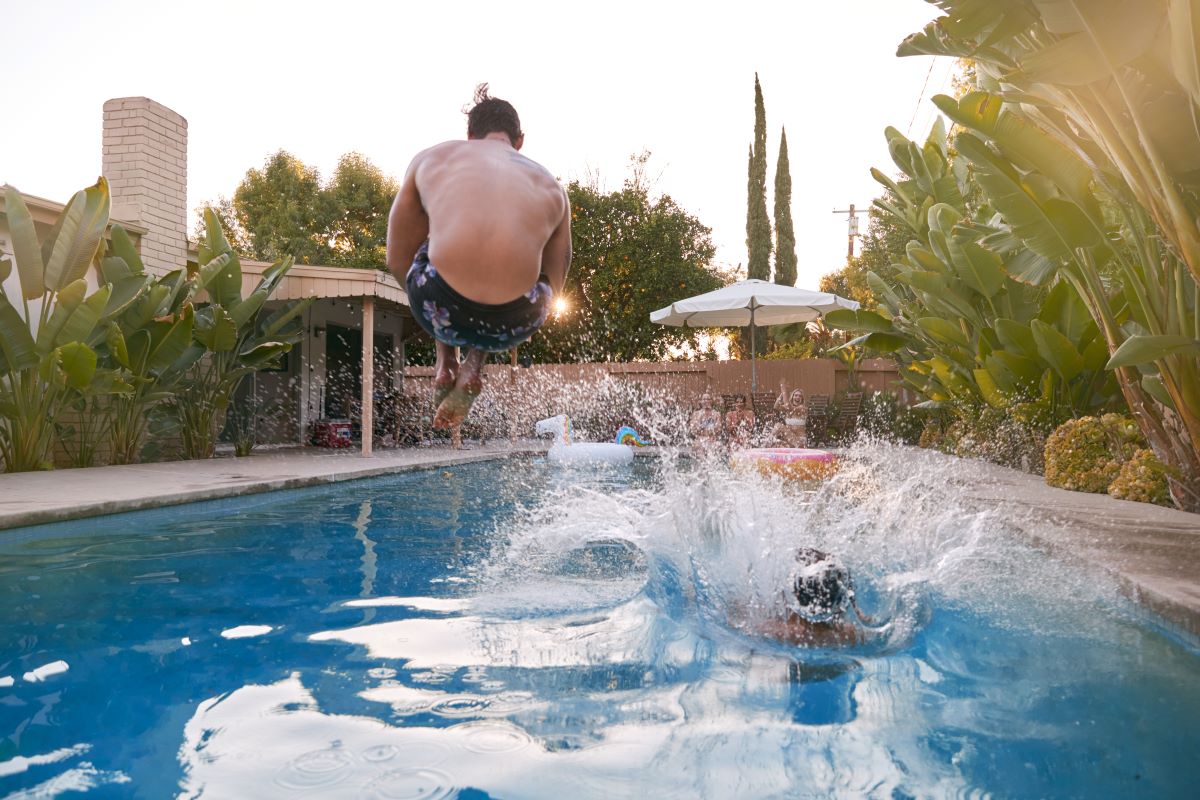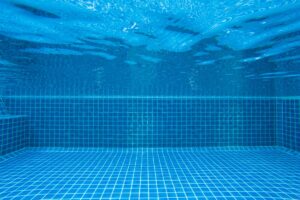
When summer arrives, your pool calls! Swimming is a great way to beat the heat and spend time with friends and loved ones. Have you ever stopped and thought about what’s left in the pool water after getting out? Some of the things left behind include sweat, hair, dead skin cells, fecal matter and sometimes even urine. Let’s talk about when to change your pool water!
Even with a filtration system, pools need to be drained and refilled to ensure it works. Drain your pool completely only if it’s necessary. Hire a professional to do this to make sure your pool stays in top shape.
How Often Should I Change My Pool Water?
This answer greatly varies between pools. The amount of time can range from two months to as long as five to seven years. Some of the following factors come into play:
- Number of daily swimmers
- Climate
- Type of water (hard or soft)
- Pool maintenance
The more often that you use your pool, the more you will have to change the water. When people go swimming, water comes out of the pool with them. Splashing and carrying water out on your bodies are some examples of how we take water out of the pool after swimming.
The climate makes a difference as well. For example, rain washes bacteria, dirt, algae spores and other debris into your pool. In turn, it can reduce the effects of chlorine which can throw off the water’s pH balance. On hot days, UV rays reduce the amount of chlorine. Chlorine is essential to killing reducing germs that can make swimmers sick. Algae growth becomes more frequent as well because the spores need sunlight and water to grow.
There are two types of pool water. There’s hard water that has more calcium and magnesium ions. Soft water contains few minerals in comparison. Hard water can stop the pool structure from corrosion, but the water that’s too hard can break down fixtures. Soft water makes for a cleaner pool. However, pools need calcium and soft water will take it from the concrete or tiles of an in-ground pool.
Make sure to create a routine when it comes to your pool. This includes cleaning it as well as ensuring the correct pH level. Having a filter will help maintain such levels. You can check them using a water testing kit. Unbalanced pH levels make the water too acidic which causes skin irritation. The appropriate level should be around 7.4.
When Do I Change and Drain My Pool’s Water?
Deciding when to change your pool water is important. Most in-ground pools should be drained and have the water replaced every five to seven years. How often you drain your pool depends on a couple of things:
- Maintenance and upkeep
- Usage
- Environment
Drain your pool during the mild season when it’s not too hot and not too cold. Spring and autumn are ideal times of the year. This will prevent pool surfaces and filtration systems from being damaged by sun, heat or moisture. You should avoid draining the pool for cleaning as this is done underwater most of the time.
Draining your pool after heavy rain or storms will add extra pressure to the bottom of the pool. This in turn creates a water table that creates a heavy weight of excess water that damages the pool’s floor. Drainers and skimmers will do most of the work for you when it rains. However, it’s always best to clean any debris out of the pool manually because the filter will not get everything. So there are a few occasions when you will need to drain your pool after the rain.
How Should I Drain Pool Water?
Determine whether your pool needs to be drained by speaking to a professional. Pool maintenance can be done when the pool is partially full. Hire a professional pool maintenance contractor or company to drain your pool if you determine your pool needs to be drained. Hiring a professional to drain your pool costs less than fixing a bad draining.
If you choose to take on draining your own pool, it’s best to use a submersible pump. Using the filter pump is the less appealing option because it’s expensive to replace. Drain your water into a sewer line on your property and make sure to not drain more than 12 gallons per minute. The process takes at least a couple of days. If you are not experienced, always hire a professional to drain your pool!
How Do I Keep Water in my Pool Longer?
Maintaining the appropriate level of chlorine makes all the difference. It kills bacteria and germs, controls organic debris perspiration and body oils and deters algae. Shower before hopping into the pool. Chlorine reacts to:
- Sweat
- Makeup
- Sunscreen
- Perfume
- Lotion
- Urine and fecal matter
All of these are things that can be found on swimmers entering the pool. This can react to chlorine and is the reason that some pools end up with a strong odour. A scent coming from the pool can be a sign that there are multiple compounds in the pool reacting with chlorine.
To maintain water quality and pool infrastructure, chlorinate the water daily. It prevents algae and microorganisms from growing. Clean the pool using suction sweepers and brushes on alternating days. Maintain a pH level between 7.2 and 7.6 to avoid irritating your skin. It’s recommended to have 1 ppm (part per million) of chlorine to kill algae or bacteria effectively.
Having an effective water filtration system recirculates water and returns it to the pool. Quickly removing filterable contaminants reduces the impact on the disinfection system.
Backwashing removes organic materials from your pool and keeps the water clean. This removes built-up contaminants from the pool by reversing the flow of water through the filter. This sends them to waste or out through the hose connected to the pump. Backwash your pool filter before adding any chemicals to the water.
In Conclusion…
Making sure that your pool is drained at the right time is as important. Knowing when to change your pool water is a key part of your pool lasting longer. It’s also makes swimming safer for you, your family and friends!



